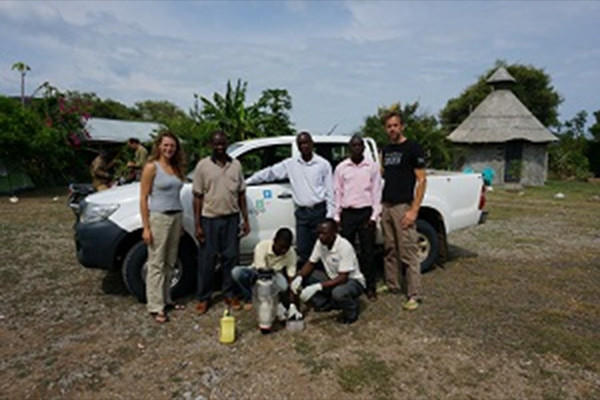25 April is World Malaria Day. At Tropicare we believe it is important to give you peace of mind while travelling with our Care Plus® products. Our social responsibility goes one step further, and our mission is a malaria-free world in 2030. This ambitious vision fits our organisation perfectly. We have been committed to the concept of travel and health since 1992.

Sharing knowledge and product development are our priorities in achieving a malaria-free world by 2030. We are continually investing in great solutions to repel, prevent and lure mosquitoes.
Malaria facts
- Severe infectious disease, caused by the stink of an infected mosquito.
- The most dangerous form of Malaria Tropica can result in death within several weeks without treatment.
- Every 60 seconds a child dies of malaria.
- 1,000,000 malaria deaths annually.
- Found in (sub) tropical locations. Native mosquitoes are now also found in Europe due to tourism, transport and world trade.
- In a few areas, the parasite has become immune to malaria remedies/medicines.
- Found in 109 countries.
- No vaccin is available.
Repelling mosquitoes
Repelling mosquitoes is usually a matter of common sense. A few simple tips will help you on your way. Do not use insect repellent as a first resort, instead, critically look at your environment. Flowerpots filled with water and blocked drains are the ideal habitat for mosquitoes. We recommend turning the pots upside down and unblocking the drains: free, simple and very effective. The malaria mosquito tends to bite after sundown. By installing insect screens in window and door frames and closing these after sundown, you will guarantee a mosquito-free (bed)room. While travelling, you can create an insect screen with our Bug Sheet. A well-functioning air conditioning system also helps to deter mosquitoes. We also advise covering your body with clothing as much as possible: long trousers, long sleeves, socks and closed shoes. Our clothing line is naturally insect repellent and sun resistant, so without impregnated textile. Better for the user, whose skin is in direct contact with the fabric, and better for the environment. We were the first ones on the market in 1997 with this innovative product.
Fighting mosquitoes
Sleeping under an impregnated mosquito net guarantees a safe and good night’s sleep. Our first mosquito nets were launched in 1997. Despite the minimal amount of impregnation, the nets are very effective for the protection against (malaria) mosquitoes, lice, bed mites and fleas. The requirements of travellers change all the time and technology is keeping up. We will launch a range of lightweight mosquito nets with durable impregnation this year, in accordance with applicable regulations concerning biocides within the European Union and beyond, and in accordance with WHO guidelines. The nets have been awarded by the ANWB professional jury. Due to the material-saving square mesh, our lightweight range is up to 50% lighter than regular nets.
Only after all this, we recommend using an insect repellent with DEET on exposed skin. Our Care Plus Anti-Insect DEET 50%, part of our range since 1994, provides up to 10 hours of protection against (malaria) mosquitoes. As an alternative, we offer Anti-Insect Natural without DEET made with natural lemon eucalyptus extracts. Natural, with 30% Citriodiol®, provides up to 6 hours of protection.
Luring mosquitoes
Tropicare supports pioneering scientific research of the Wageningen University Laboratory, in search of a solution to keep the (malaria) mosquito away from people. A study group led by Professor Takken has developed substances that attract mosquitoes. These attractants are used to lure mosquito populations away from African villages and catch them, so that the risk of a malaria mosquito’s bite is reduced to such an extent that malaria disappears.
We donated 28 mosquito traps, the MMX Counterflow Mosquito traps, in 2012. The traps are important to gain information on malaria mosquitoes in and around the house. Based on this information, new control techniques can be used. A field study is being carried out on the Kenyan Rusinga Island. Last year, Arnoud Aalbersgerg, founder and CEO of Tropicare, visited the project. The results of the field study are promising. The mosquito traps bring down the mosquito populations in the huts, and the traps’ battery and solar panel provide an additional advantage. They provide electricity for lighting and charging facilities for mobile phones (because everyone has one!).
In order to be able to offer travellers a solution, we are interested in gaining experience with a portable mosquito trap. Another wonderful innovative effort for Care Plus and a step closer to a malaria-free world by 2030!
